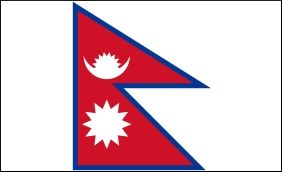|
|
|

|
Rising inflation, Covid make people more vulnerable in Nepal
|
|

|
|
| Top Stories |
 |
|
|
|
IANS | 23 Jan, 2022
Many families in Nepal are struggling due to reduced job
opportunities and growing inflation amid the Covid-19 pandemic, which
is still continuing unabated and has increased the single-day cases to
more than 10,000 in the past few days.
The monthly consumer price
inflation climbed to 7.11 per cent in December 2021, the highest in 64
months, from 5.32 per cent in November, according to data from the
country's central bank.
As a result, the prices of edible oil and
ghee had surged year on year by 28.52 per cent, followed by pulses and
legumes at 11.79 per cent, and tobacco products at 11.74 per cent,
reports Xinhua news agency.
In terms of the wholesale price
index, wood and wood products saw the highest price rise of 26.35 per
cent, followed by fuel and power at 22.27 per cent, and construction
materials at 19.34 per cent.
Experts have said that rising
inflation has been affecting the lives of the general people badly at a
time when they are suffering from unemployment and less income.
"The
biggest impact of higher inflation is on the daily wage earners and
those with fixed incomes," said Prakash Kumar Shrestha, chief of the
economic research department at the central bank.
"As inflation
contributes to a fall in the purchasing power of people, it has affected
the livelihoods of many downtrodden people."
The experts have
blamed the rising inflation in Nepal on supply chain disturbance, high
petroleum prices, increasing transport fares and shipping charges.
The South Asian country relies heavily on imported goods, particularly those from neighbouring India.
Nepal's
imports reached as high as 838.4 billion NPR ($7 billion) in the first
five months of the current fiscal year that began in mid-July last year
and around 60 per cent were from India, according to the central bank
figures.
For the last fiscal year, the average annualized
inflation was 3.6 per cent, which was lower "because of suppressed
demands due to lockdowns, which led to the closure of markets", said
Shrestha.
Experts said that they were expecting the inflation to
grow in the next few months after the country further increased the
prices of petroleum products in the past week, and that a possible
depreciation of the Nepali currency against the dollar may also
contribute to increasing prices of imported goods.
In November
last year, the central bank's inflation expectation survey showed that
most people expected the average prices of goods and services to rise by
a staggering 11.3 per cent for a year.
"One factor that could
contribute to further rise in inflation in the days to come is the
proposed elections in 2022," said Puspa Lal Shakya, an economics
scholar.
"Political parties and their candidates shall spend
heavily to win elections, creating more demands for goods and services
and contributing to a rise in inflation."
Nepal will hold local, provincial and federal elections in 2022.
Experts,
however, have not ruled out the possibility of inflation being tamed
due to a slump in demands over possible lockdown and more restrictive
measures to control the spread of the coronavirus.
|
|
|
| |
|
|
|
|
|
|
|
|
|
|
|
|
|
|
| |
| Customs Exchange Rates |
| Currency |
Import |
Export |
US Dollar
|
₹91.35
|
89.65 |
UK Pound
|
₹125.3
|
₹121.3 |
Euro
|
₹108.5
|
₹104.85 |
| Japanese
Yen |
₹58.65 |
₹56.8 |
| As on 19 Feb, 2026 |
|
|
| Daily Poll |
 |
 |
| What is your primary "Make or Break" expectation from the Finance Minister this year? |
|
|
|
|
|
| Commented Stories |
 |
|
|
|
|
|
| |
|